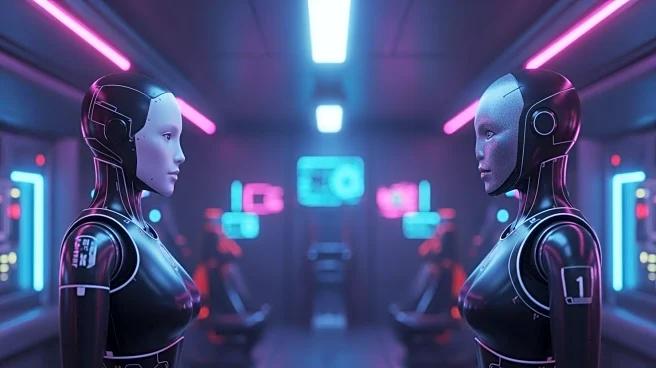What's Happening?
Obsidian Entertainment is set to launch The Outer Worlds 2 in early access, introducing a unique dynamic where companion characters can turn against players based on their decisions. Unlike traditional action-RPGs, these companions cannot be romanced
but have their own motivations and goals. Game directors Matt Singh and Brandon Adler explained that if players align with their companions' interests, they will receive support. However, if players act against these interests, companions may leave or even attack the player. For instance, the character Inez, aligned with the Auntie's Choice faction, will retaliate if players ignore her requests to stop killing faction members. Companions will provide warnings and ultimatums, allowing players to attempt to mend relationships before conflicts arise.
Why It's Important?
This development in The Outer Worlds 2 highlights a shift in game design, emphasizing character autonomy and player consequences. By allowing companions to react dynamically to player choices, Obsidian Entertainment enhances the narrative depth and strategic complexity of the game. This approach may influence future RPGs, encouraging developers to create more immersive and responsive game worlds. Players must consider their actions carefully, impacting their gameplay experience and potentially altering story outcomes. This innovation could attract a broader audience seeking more engaging and challenging gameplay.
What's Next?
The Outer Worlds 2 is scheduled for release on October 29, with early access beginning on October 24. As players explore the game, they will encounter these companion dynamics firsthand, potentially influencing their strategies and decision-making processes. Obsidian Entertainment may continue to refine these mechanics based on player feedback, possibly leading to updates or expansions that further develop companion interactions. The game's reception could also impact future projects by Obsidian and other developers, setting a precedent for character-driven narratives in RPGs.
Beyond the Headlines
The introduction of complex companion dynamics in The Outer Worlds 2 raises ethical questions about player agency and the portrayal of relationships in video games. By simulating real-world consequences for actions, the game encourages players to reflect on their decision-making processes and the impact of their choices. This could lead to discussions about the role of video games in teaching empathy and understanding, as players navigate the moral complexities presented by their virtual companions.
















